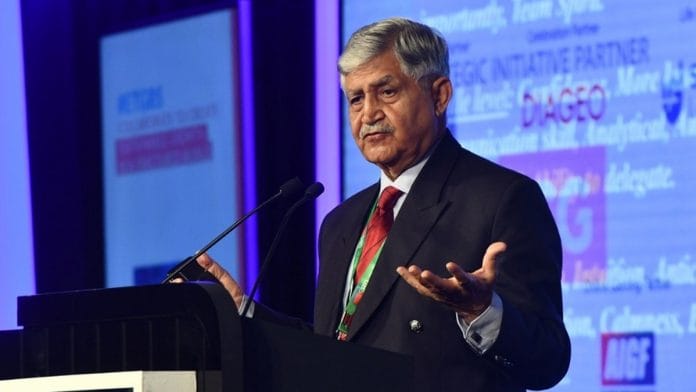New Delhi: When the Army went into the 1999 Kargil conflict, it did not have enough weapons or proper clothing for soldiers, General V.P. Malik (Retd), who was chief of the Army staff at the time, has told ThePrint.
He said that despite challenges and the Army’s “bottom line” approach due to budgetary constraints from the early 1990s, its troops “displayed commendable resoluteness, determination, courage and valour” to win the conflict.
“I have often acknowledged that every time I needed to boost my own morale, I would go to the front and get reassured, seeing the commitment and motivation of the youngsters,” he said.
General Malik recounted that the political and military class was taken aback by the intelligence and surveillance failure that enabled the sudden attack.
Other challenges soon manifested themselves like those of the mountains, the high altitude and glaciated terrain, “which required specialised uniforms and equipment, of which we had very little”.
Acclimatisation before deployment of additional troops was also a challenge, he said. Moreover, the local formation had no idea as to which mountain tops had been occupied by the enemy.
He added that India’s winter aerial surveillance operation failed to notice any such occupation and that there were no drones, radars or ground surveillance gadgetry at that time. There were also shortages of weapons, ammunition and other equipment.
“In the early 1990s, the Army was forced to adopt a ‘bottom line’ approach due to budgetary constraints. We were holding only 70-80 percent of authorised weapons, ammunition and equipment. It was less than that in cases of some ammunition.”
He added the 30 Rashtriya Rifles battalions raised during that period had not received government sanction for arms either.
Highlighting challenges due to western sanctions after the nuclear tests carried out by India in 1998, he said, “The US did not share intelligence available with it. Some short-notice attempts made to purchase weapons, equipment, and satellite imagery also failed.”
General Malik further said the Army took the risk of “denuding some of our holding formations to strengthen formations in Kargil Sector”.
He said, “I must acknowledge that some of our ammunition-producing ordnance factories rose to the occasion and rapidly produced the needed ammunition which they were capable of. It is good to see the emphasis on atmanirbharta in this field today.”
In today’s scenario, China is the main threat and the external threat from Pakistan has reduced on the borders, although its proxy war continues, he said. “I don’t think it will dare another Kargil-sized venture.”
He added there have also been tremendous changes in defence-related technologies, capabilities and doctrines. While the armed forces have acquired some, they were trying to acquire many more, he said.
“The political thinking is more proactive than it was in my time, which is good. However, many reforms attempted recently have not achieved the desired synergy in the government and the jointmanship necessary for the threats and nature of conflicts existing today.”
General Malik said that in the absence of a national security strategy or guidance, futuristic defence planning and contingency planning in the armed forces had been hampered. “The armed forces leadership continues to remain out of the national security decision-making loop till the crises are upon us,” he added.
(Edited by Tikli Basu)
Also read: Security forces likely to launch special operation in Jammu region to counter new wave of terror







We will fight with what we have.